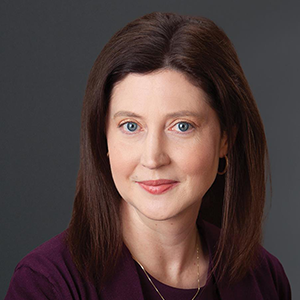the relationship rabbi retires

When Rabbi William Sajowitz courted New Jersey native Mark Joel Mahler for an open associate rabbi position at Temple Emanuel in 1980, he knew he would have to overcome incorrect perceptions of Pittsburgh to woo him to move here. So he drove Mahler and his wife, Alice, through Virginia Manor. “What a lovely community this is,” Rabbi Mahler remembers thinking. “This is not all steel mills and coal mines.”
When they arrived at Temple Emanuel, 1250 Bower Hill Road, Mahler was attracted to the bustling dynamics of the synagogue and the members’ commitment to Judaism.
Yet it hasn’t been the charming community that has kept Mahler here since that day. “It’s the Finger of God when everything is said and done,” he says. That, and the relationships he’s built over the decades. “Judaism is the religion of relationships,” he explains, citing the relationship between humankind and God, and the relationships between the Jewish patriarchs and the matriarchs. “Relationships [with the congregation] are the basis for a good rabbinate,” he says.
After 38 years, Mahler will retire at the end of June, having served as rabbi for more than half of Temple Emanuel’s existence. Rabbi Donald Rossoff will serve for one year as interim rabbi, at which point a new settled rabbi will take over. A search committee is seated to find a match. Associate Rabbi and Director of Education Jessica Locketz was recently promoted to rabbi and director of education. Mahler will remain rabbi emeritus and will be welcome at any time. However, it is considered a best practice for a retiring rabbi to stay away from the synagogue for six months to allow the congregation to move on and the new rabbi to be the point person.
Mahler has been a leader for the Pittsburgh Jewish community as the longest tenured active rabbi in the Pittsburgh area, says temple president David Weisberg. “He loves his congregation. He loves Torah [the five books of Moses],” Weisberg says. Weisberg lauded Mahler’s knack for taking life cycle events—births, baby namings, bar and bat mitzvahs, confirmations, weddings and funerals—and tailoring them with specific memories and details of the family’s life.
Mahler earned a bachelor of science degree from Fairleigh Dickinson University, and graduated cum laude from its Honor College. Despite originally wanting to be a doctor, he was ordained at the Hebrew Union College-Jewish Institute in Religion in New York in 1978, where he also received his master’s degree in Hebrew literature. He earned his doctor of divinity degree from Hebrew Union in 2003. After serving at a large 1,600- to 1,700-family synagogue in Philadelphia, he began as Temple Emanuel’s associate rabbi and temple educator in 1980 before becoming senior rabbi in 1985.
Throughout Mahler’s tenure, the Reform Jewish congregation has gone through many changes, including a $3.6 million expansion of the temple to add a more intimate prayer space called the Beit HaT’fila, a library, community rooms and handicapped accessibility. The services also have changed, with prayers morphing away from male-centered descriptions of God. Services are more participatory, with the congregation singing just as much as the cantor and the rabbis. The guitar has replaced the organ as the main musical instrument. In fact, it’s rare to see Mahler without one of his guitars (or mandolin) nearby. The congregation started with a few dozen families, grew to 600 and now has leveled off at 500.
But throughout his time and no matter the changes, the congregation has stayed in the mainstream of Reform Judaism. Reform Judaism, generally regarded as a liberal reading of the religion, promotes the tradition of the covenant between God and the Jewish people, while embracing diversity, highlighting education and emphasizing the requirement of doing acts of good in the world. “Torah has been alive and well in the congregation,” he says. “Judaism has been alive here.”
The renovation, designed by architect Dan Rothschild, a congregant and former temple president, is one of the hallmarks of Mahler’s time here, Weisberg says, but so is his ability to comfort families during times of need. Also noteworthy is Mahler’s ability to keep the congregation financially solvent during the 2008 recession by approaching a well-off congregant and asking for help on behalf of the synagogue.
Mahler built a strong relationship with pastors of other faiths and leaders of local school districts, which helps de-stress the public during times of uncertainty or episodes of religious intolerance.
On the morning of the Mt. Lebanon Magazine interview, Rabbi Mahler shared that day’s morning prayer, which included his traditional prayer that God grant him understanding, knowledge and common sense. But adding to that traditional weekday request, Rabbi Mahler always asks for wisdom, with a nod to the fact that wisdom is something one has to learn on his or her own.
Mahler doesn’t want to comment on what he thinks his legacy is, noting his goal was simply “to do my best. Whether or not my best was good enough, I’ll leave others to decide,” he says. In fact, he says no one has been more critical of him that he has been of himself, but that criticism has led to growth. “Being a rabbi is something you should only get better at,” he says.
Among his biggest challenges has been helping congregants get through difficult situations. In that regard, he has a resource in Alice, who is a licensed clinical social worker. “She’s been my counselor, too,” he says. “I’ve been sustained by the faith that God will get me through this.”
He and Alice have raised four children in Mt. Lebanon: Ari, Shoshanna, Moshe and Shira. They also have two grandchildren, just one of the reasons they have no plans to leave their Carleton Drive home.
Mahler also has been active in many community organizations. He served on the board of the Jewish Family and Children’s Service and the advisory board of the Anti-Defamation League of B’nai Brith. He is a past president of the Rabbinic Association of Greater Pittsburgh. Among his many volunteer organizations, he served on the advisory council of United Mental Health and the South Hills Interfaith Movement.
Mahler is confident in the future of the synagogue and Reform Judaism as a whole, despite recent reports that millennials, while spiritual, don’t necessarily affiliate with religious organizations as much as previous generations. In fact, he disputes that notion, citing Baby Boomers, who weren’t joiners either. “I’m not too worried,” he says. “God keeps the Jewish people alive. A thousand years from now there will be Jews saying ‘Shema Yisrael’ every morning.”
He also is confident that Temple Emanuel will attract a highly qualified new rabbi, especially with Pittsburgh’s reputation for excellent education, top-notch technology and a growing foodie scene. And, of course, the relationships. “What is the appeal of Pittsburgh?” Mahler asks. “Nice people. Good people. People who make relationships easier and worthwhile.”
Temple Emanuel will have a gala in honor of Mahler on Sunday, June 3. It is open to the public, and ticket information is available at www.templeemanuelpgh.org.





